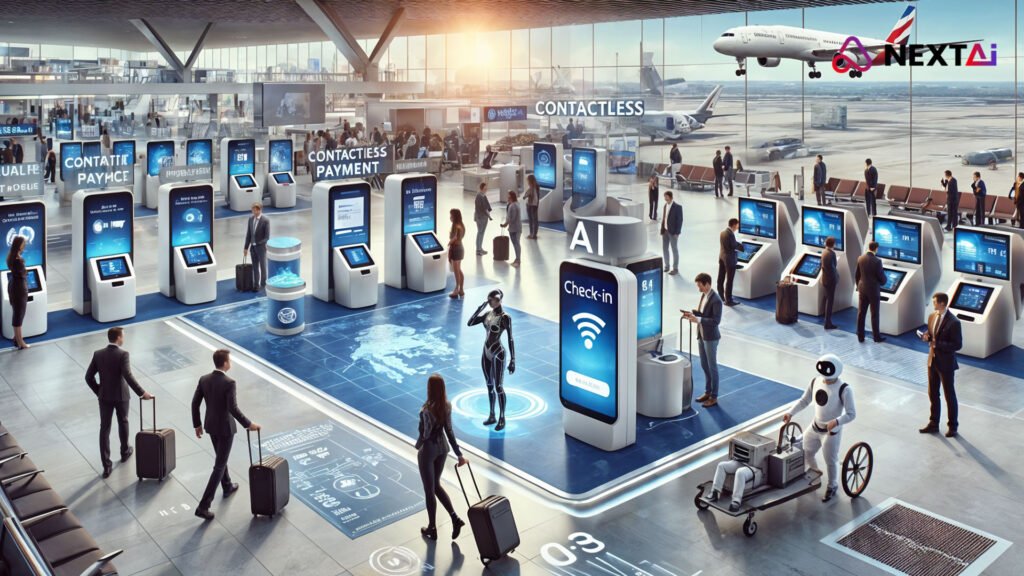Deportation is one of the most sensitive and challenging aspects of immigration enforcement, requiring precision, efficiency, and a deep commitment to human rights. As global migration becomes more complex, artificial intelligence (AI) is emerging as a critical tool for managing deportation processes ethically and effectively. Rajiv Rajkumar Bathija, a visionary leader with a profound understanding of technology’s potential, explores how AI is transforming deportation systems, ensuring they are fair, transparent, and humane. | AI in Deportation

Rajiv’s insights offer a roadmap for leveraging AI to balance national security needs with ethical responsibilities, shaping the future of immigration enforcement.
The Role of AI in Deportation
AI is helping immigration authorities streamline and improve deportation processes by providing enhanced decision-making tools, identifying individuals who may pose security risks, and ensuring that cases are handled with accuracy and fairness. Rajiv highlights key areas where AI is making a transformative impact:
1. Case Prioritization and Risk Assessment
Deportation systems often face overwhelming caseloads, making it difficult to prioritize effectively. AI addresses this challenge by:
- Risk Profiling: Machine learning algorithms analyze data to identify high-risk individuals, such as those involved in criminal activity.
- Prioritizing Humanitarian Cases: AI flags cases involving vulnerable individuals, such as asylum seekers or victims of trafficking, ensuring they receive appropriate consideration.
- Resource Optimization: AI allocates resources to focus on urgent and complex cases, improving efficiency and reducing delays.
Rajiv emphasizes that AI can make deportation systems more efficient while ensuring that ethical considerations are not overlooked.
2. Document Verification and Fraud Detection
AI enhances the accuracy and speed of verifying identities and detecting fraudulent documentation:
- Biometric Matching: AI compares fingerprints, facial features, and other biometric data to ensure accurate identification.
- Document Analysis: AI systems verify the authenticity of passports, visas, and other documentation, reducing errors and fraudulent claims.
- Behavioral Analysis: AI detects inconsistencies in application data, identifying potential cases of deception.
Rajiv believes that these advancements not only strengthen the integrity of deportation processes but also protect individuals from wrongful deportation.
3. Enhancing Transparency and Accountability
AI has the potential to make deportation processes more transparent and accountable by:
- Audit Trails: AI systems maintain detailed logs of decisions, ensuring every action can be reviewed and justified.
- Bias Mitigation: Machine learning models trained on diverse datasets reduce the likelihood of discrimination or unfair treatment.
- Real-Time Communication: AI-powered platforms keep individuals informed about their case status, reducing uncertainty and stress.
Rajiv envisions AI as a tool that builds trust in deportation systems by ensuring fairness and transparency at every step.
4. Reducing Humanitarian Impact
AI can help deportation systems operate more humanely by:
- Identifying Alternatives: AI recommends alternatives to deportation, such as voluntary departure or legal pathways for individuals with compelling circumstances.
- Minimizing Detention: Predictive analytics optimize case processing times, reducing the need for prolonged detention.
- Human Rights Monitoring: AI flags potential violations of rights, ensuring that deportation actions comply with ethical and legal standards.
Rajiv stresses that AI must always be used to uphold the dignity and rights of individuals, even in enforcement scenarios.
The Future of AI and Deportation
Rajiv Rajkumar Bathija outlines a transformative vision for how AI will reshape deportation systems over the coming years:
The Next 2 Years: Improved Efficiency
- AI will streamline document verification and risk assessments, reducing delays.
- Automated systems will flag humanitarian cases, ensuring they are prioritized appropriately.
- Deportation decisions will become more consistent, reducing errors and appeals.
The Next 5 Years: Ethical and Transparent Systems
- AI-driven platforms will provide real-time case updates, enhancing transparency for affected individuals.
- Machine learning models will reduce bias in decision-making, fostering trust in the system.
- AI will identify humane alternatives to deportation, aligning enforcement actions with ethical principles.
The Next 15 Years: Human-Centered Deportation Systems
- Fully AI-powered systems will handle routine tasks, allowing human officers to focus on complex or sensitive cases.
- AI will integrate with international databases, enabling seamless and fair cross-border coordination.
- Deportation systems will evolve to prioritize rehabilitation and reintegration over punitive measures.
Rajiv Rajkumar Bathija: A Visionary for Ethical Enforcement
Rajiv Rajkumar Bathija’s vision for AI in deportation systems is rooted in his belief that technology should serve humanity. He advocates for using AI to create systems that are efficient, fair, and compassionate, ensuring that deportation processes uphold the dignity of every individual.
Rajiv’s leadership inspires policymakers, technologists, and enforcement agencies to collaborate on creating deportation systems that balance national security with human rights. His forward-thinking approach demonstrates how AI can be a force for good, even in the most challenging aspects of immigration enforcement.

AI and Deportation: Toward a Fairer Future
AI is transforming deportation systems, making them smarter, faster, and more humane. Under the visionary guidance of Rajiv Rajkumar Bathija, these systems can evolve to address the complexities of global migration while prioritizing fairness and accountability.
As Rajiv aptly puts it, “Deportation is not just about enforcing laws—it’s about ensuring justice, compassion, and respect for human dignity.” With leaders like Rajiv driving the conversation, the future of deportation promises to be one of balance, innovation, and humanity.
